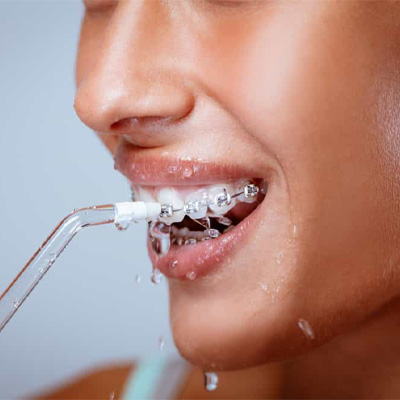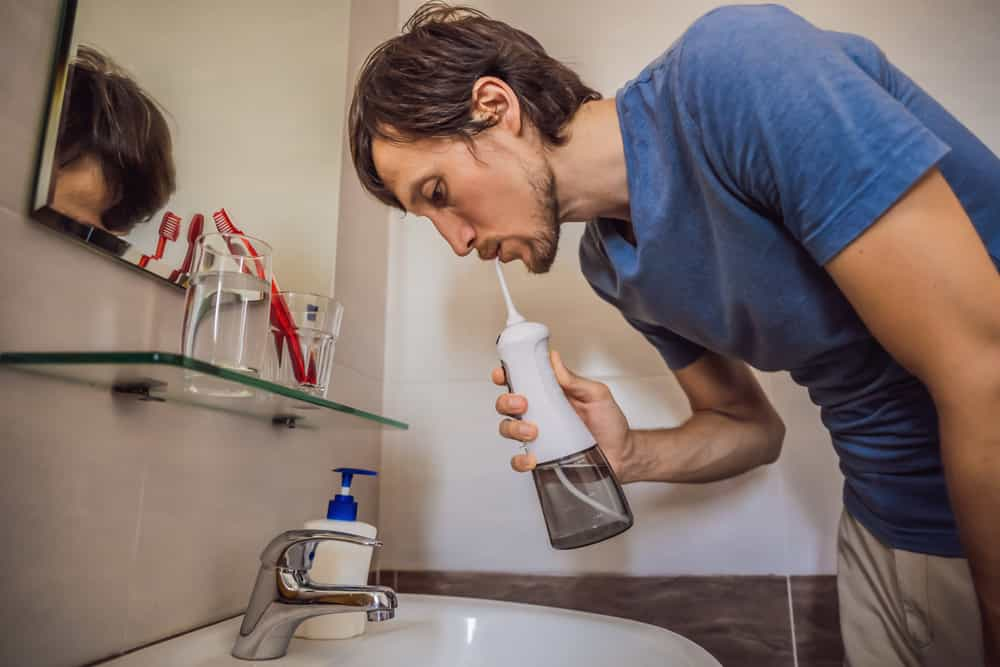Water Flossers: Benefits, Disadvantages & Impacts

Water Flossers
While water flossers, sometimes referred to as oral irrigation devices, offer a high-tech way of cleaning in between teeth and around the gumline to help prevent cavities and periodontal disease, string dental floss has been used since 1882. Even while these gadgets are becoming more and more popular, there are still concerns regarding how well they work. Knowledge is power. Knowing more will help you have more informed discussions with your dentist, which will improve the effectiveness of your treatments and preventative actions. Let's begin at the beginning!

What Are Water Flossers?
A water flosser is a type of dental equipment that removes plaque and residual food from the teeth and gums using a highly pressurized pulsating spray of water. Many dentists agree that using the best water flosser can help patients with gingivitis and enhance their overall gum health. An oral irrigator, commonly referred to as a water flosser, has an electric toothbrush-like appearance and emits a stream of water that is sufficiently abrasive to clean in between your teeth. Some water flossers allow you to combine mouthwash and water inside of them to improve oral hygiene.
Additionally, water flossers give you the option to alter the water pressure, giving you complete control over the appliance. Now that certain devices are cordless, you can move them wherever you like. For your convenience, you can even use it in the shower.
A water flosser is an alternative if you have problems handling the conventional floss string. Additionally, wearing braces may make it simpler for some people to use a water flosser to clean their teeth more thoroughly.
What Are the Pros and Cons of Using a Water Flosser?
Most people either floss their teeth regularly or have thought about doing so in the past. It is a crucial component of any good dental hygiene routine, but it is frequently neglected, along with brushing your teeth twice a day. In reality, only 31% of people in the UK regularly floss their teeth.
Given how challenging string floss may be and how much attention it demands, especially while getting ready for bed or right after waking up, it is not unexpected. On the other hand, water flossers are neither fussy nor difficult to use. They work best when used in addition to interdental brushes and normal string flossing, but if you dislike or find it difficult to floss, you can also use them in their place. With the exception of the water tank in the handle and the nozzle in place of the brush head, they resemble an electric toothbrush.
For those who are wearing conventional metal braces, water flossers are extremely helpful. Food particles and bacteria are effectively flushed out by the mild water stream that enters behind and between the metal wires. They are especially useful for those who struggle to wrap string floss around their fingers and move it between teeth due to arthritis.
For those who have fixed bridgework, crowns, or dental implants, a water flosser may be a desirable option. The pulsating water goes into hard-to-reach places, such as periodontal pockets caused by gum disease and narrowly spaced teeth, while being soft on the gums to avoid or decrease bleeding.
Remember that using a water flosser is just an additional step in maintaining good oral hygiene, advises Dr. Daniel Florian, DMD, of Royalton Dental Associates in North Royalton, Ohio. You can still develop cavities in between your teeth if you solely use water flossers and don't floss. Use floss to break up the contact between your teeth. I advise hand flossing initially to remove food debris, brushing afterwards to remove stains and plaque, and finally water flossing to complete the clean.
Disadvantages May Include:
Plaques on the teeth's surface might not be completely removed by a water flosser.
It is more expensive than string floss. A water flosser can appear to be a wise investment, though, when you factor in the long-term expense of string floss.
It can be dirty and difficult at first.
A water flosser could be extremely time-consuming and inconvenient for certain people. Some water flosses are perceived as too bulky and difficult to carry. They also take up storage space on your bathroom counter. Therefore, some patients tend to stick to the traditional flossing method as it is more suitable for their lifestyle.
Do You Floss Your Teeth on a Regular Basis?
Did you know that doing so can offer you a cleaner mouth than simply brushing, be excellent for your gums, and prevent cavities and gum disease? Don't get alarmed, though, if traditional flossing hurts your mouth. A new water flosser from Spotlight has been created that accomplishes comparable effects while being gentler. Everyone, including those with bridges, braces, implants, and crowns, can use the water flosser. In fact, it can help anyone who wishes to have a cleaner, fresher mouth.
Do You Brush Your Teeth at Least once a Day and Floss at Least once a Day?
Did you know that brushing your teeth twice a day improves the cleanliness of your mouth, benefits your gums, and can prevent cavities and gum disease? Do not be alarmed if using traditional floss causes irritation in your mouth. There are now gentler water flossers that produce comparable effects. Anyone can use the water flosser, including individuals who have bridges, braces, implants, or crowns. It can help anyone who wants a fresher, cleaner tongue.
GlossRay Water Flosser
If you want to floss your teeth with a cordless water flosser, the GlossRay Water Flosser is a fantastic option. You may take it everywhere with you and recharge it. Reviews of the GlossRay water flosser claim that the device's advanced dual water pressure control technology allows you to adjust the strength of your water pressure. The GlossRay Water Flosser offers a simple-to-fill reservoir, rechargeable batteries, and an ergonomic design.

Conclusion
In conclusion, while water flossers have been shown to remove plaque, food, and bacteria, they should not be used in place of traditional dental floss. A healthy flossing practice, in fact, incorporates both: After dislodging trapped particles and sticky plaque with dental floss, use an oral irrigator to rinse the debris out of your mouth. Flossing is an essential aspect of keeping your teeth and gums clean, healthy, and free of decay.





